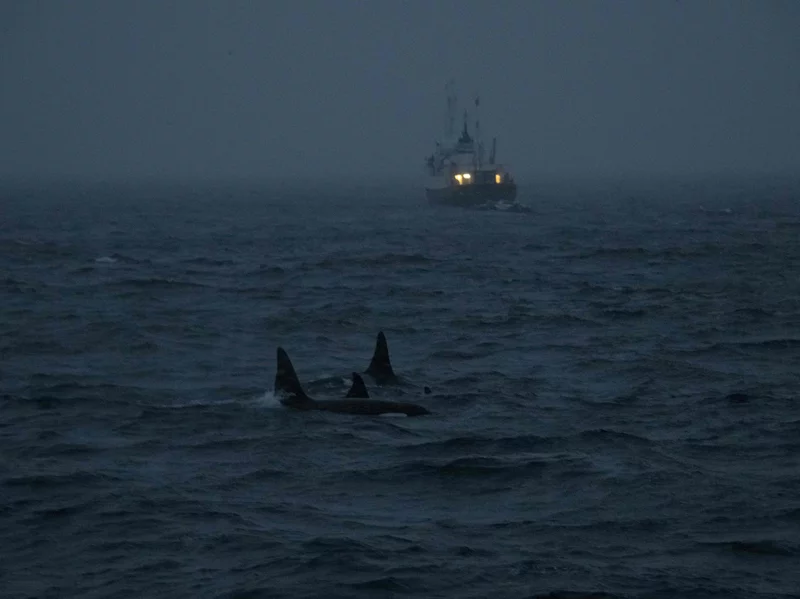In a concerning trend, scientists and sailors are reporting a rise in “attacks” by orcas, also known as killer whales, on yachts along Europe’s Iberian coast. Recent encounters suggest that the tactics employed by these marine mammals are becoming more stealthy and deliberate, causing damage to vessels and raising questions about their motives and behavior.
Yachts Targeted by Stealthy Orcas
Delivery skipper Dan Kriz, who previously experienced an incident where orcas destroyed the rudder on a boat he was on in 2020, encountered a similar situation in April. This time, the orcas approached more stealthily, without their usual communicative squeaks. They swiftly damaged the rudders of the catamaran Kriz was delivering, leading him to believe that the orcas were purposefully targeting the rudders.
Increasing Frequency of Interactions
A study published in the journal Marine Mammal Science in June 2022 revealed that orcas have escalated their interactions with sailing vessels in and around the Strait of Gibraltar, a busy waterway linking the Mediterranean Sea with the Atlantic Ocean. While some scientists view these encounters as playful behavior, incidents involving significant damage to sailboats’ rudders have become more frequent.
Playfulness or Frustration?
Researchers have proposed various hypotheses to explain the behavior of the orcas. Renaud de Stephanis, from CIRCE Conservación Information and Research, suggests that orcas might be attracted to the feel of a boat’s rudder. They may become frustrated when encountering sailboats not using their engines, leading them to break the rudder. However, recent encounters indicate a more deliberate and potentially aggressive approach by the orcas.
Revenge Attacks or Traumatic Responses?
There is speculation that the encounters could be linked to past trauma experienced by a female orca named White Gladis, who leads a pod of approximately 40 animals. Alfredo López Fernandez, a biologist at the University of Aveiro, believes that White Gladis may be teaching her pod-mates to carry out revenge attacks as a response to her own traumatic encounter with a boat or fishing net. However, skepticism remains among other experts, who highlight the absence of similar aggressive behavior in other killer whale populations.
Regional Phenomenon, Limited Impact
While the situation off the Iberian coast raises concerns, experts emphasize that this behavior is not observed in other populations of orcas worldwide. Monika Wieland Shields, director of the Orca Behavior Institute, acknowledges the possibility of complex emotions such as revenge in orcas but highlights the need for further evidence. Similarly, Deborah Giles, the science and research director at Wild Orca, questions the revenge hypothesis and points out previous instances where orcas did not exhibit aggressive behavior despite being targeted by humans.
The increasing “attacks” by orcas on yachts along Europe’s Iberian coast have drawn attention to the evolving tactics of these marine mammals. While some theories suggest playfulness or frustration as motives, others propose revenge or trauma as explanations. However, the limited impact and regional nature of these incidents caution against generalizing the behavior to other killer whale populations. As researchers continue to study and monitor these encounters, understanding the true motives behind the orcas’ actions remains a complex challenge.







